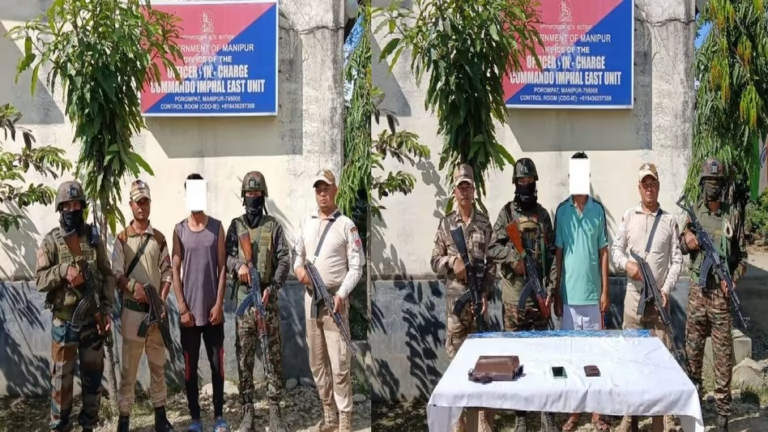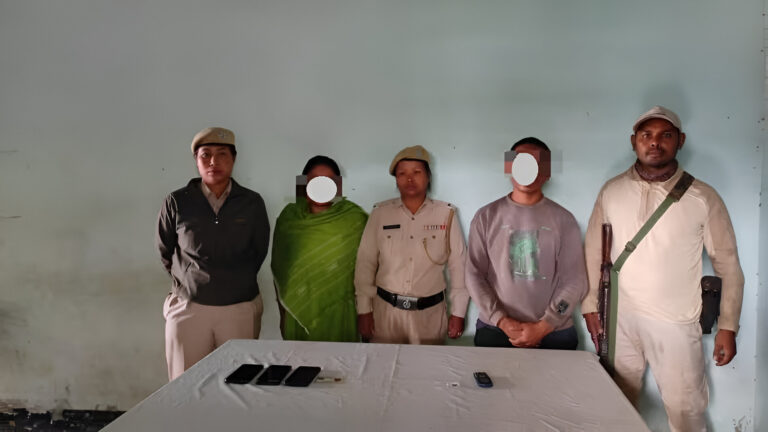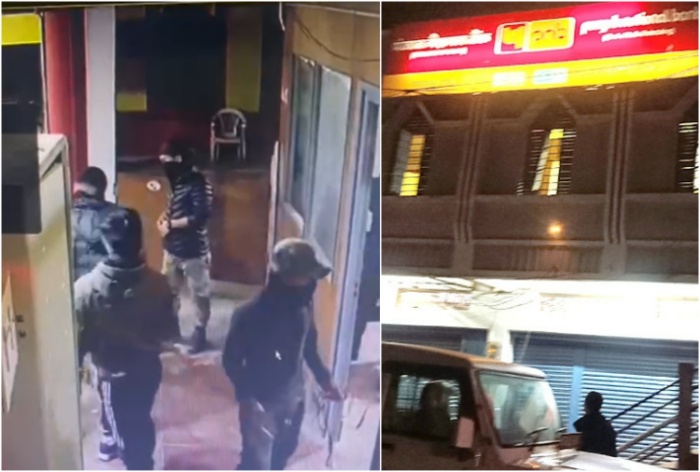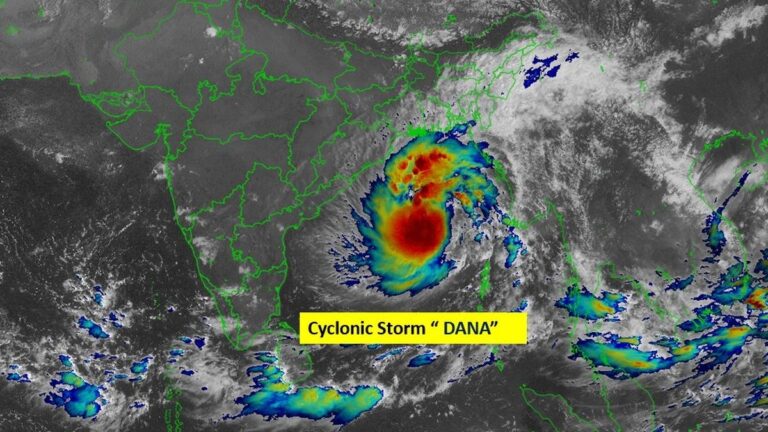Security Forces Arrest Five Cadres of Banned Outfits in Manipur Operations: A Closer Look at Law Enforcement and Regional Security
Summary
In a significant development for regional security in Manipur, security forces have arrested five cadres belonging to banned outfits during a series of targeted operations. This decisive action by law enforcement aims to curb the activities of these extremist groups, reinforcing the state’s commitment to upholding peace and stability. The arrests underscore a broader effort to dismantle networks that threaten local harmony and democratic governance.
In-Depth Article
Introduction
Have you ever wondered how law enforcement agencies work tirelessly behind the scenes to maintain peace and order in challenging regions? In the heart of Manipur, a state known for its unique cultural tapestry and complex socio-political landscape, security forces have made a decisive move. They have arrested five cadres from banned outfits as part of ongoing operations to safeguard regional security. This news not only highlights the determination of the authorities but also opens a window into the intricate dynamics of countering extremist activities in a volatile environment.
In this article, we’re going to take an in-depth look at what led to these arrests, the historical background of banned outfits in Manipur, the impact of such operations on local communities, and the broader implications for regional security. Grab a cup of your favorite beverage, and let’s explore how this operation fits into the larger puzzle of maintaining law and order in a region where every action has far-reaching consequences.
Understanding the Context: Manipur and Its Security Challenges
Manipur, nestled in the northeastern part of India, is a state rich in cultural diversity and natural beauty. However, it is also a region that has experienced its share of turmoil, with various extremist and banned groups attempting to destabilize the peace. The security challenges in Manipur are as complex as they are pressing, involving a delicate interplay of local grievances, political aspirations, and long-standing historical conflicts.
Imagine a beautifully intricate tapestry where each thread represents a different community, tradition, or political interest. When a few threads begin to unravel due to extremist influences, the entire pattern can be jeopardized. This is exactly the scenario that law enforcement in Manipur faces when dealing with banned outfits. These groups, often operating under the radar, have been known to incite violence, create unrest, and undermine the stability of the region. The recent arrests mark a crucial step in the ongoing efforts to re-weave the fabric of peace and security in the state.
The Rise and Role of Banned Outfits in Manipur
Before we delve into the specifics of the recent operation, it’s essential to understand who these banned outfits are and what drives them. Over the years, Manipur has seen the emergence of various militant groups, some of which have resorted to violent means to push their agendas. These groups are typically labeled as “banned outfits” due to their involvement in activities that threaten national security, promote insurgency, or disrupt the social harmony of the region.
These outfits are often fueled by a mix of political, ideological, and sometimes ethnic motivations. They tend to thrive in environments where there is political discontent, economic disparity, or unresolved historical conflicts. The banned status is a legal mechanism employed by the government to curb their influence, making it easier for security forces to take decisive action against them.
Think of it as a game of chess—each move by these groups is calculated to destabilize the region, much like a strategic play meant to overthrow the established order. However, just as in chess, every move is met with a counter-move by the security apparatus, which in this case, is the recent arrest of key cadres.
Details of the Operation: How the Arrests Unfolded
So, what exactly transpired during this operation? According to reliable sources and official statements, security forces conducted meticulously planned raids in areas suspected of harboring banned outfits. These operations were not random acts of aggression but were the result of careful intelligence gathering and strategic planning.
The operation culminated in the arrest of five cadres, individuals who were believed to be playing pivotal roles within these extremist groups. The arrests were executed with precision and were part of a larger crackdown aimed at dismantling the operational capabilities of these outfits. Officers on the ground moved swiftly, leveraging real-time intelligence and advanced surveillance methods to track down and apprehend the suspects.
Imagine a well-coordinated rescue mission where every second counts—this operation was akin to that, with every move calculated to minimize risks and maximize the impact of the crackdown. The use of modern technology, such as drone surveillance and cyber intelligence, played a significant role in ensuring that the operation was both safe and effective.
The Legal and Constitutional Framework Behind the Arrests
You might be wondering, what legal grounds do the security forces have to arrest these individuals? The arrests are carried out under the strict provisions of Indian law, which empower authorities to take action against organizations and individuals deemed a threat to national security. Laws such as the Unlawful Activities (Prevention) Act (UAPA) provide the legal framework within which these operations are conducted.
Under these regulations, any group that is involved in activities aimed at subverting the constitutional order or inciting violence can be designated as a banned outfit. Once a group is banned, law enforcement agencies are authorized to take necessary actions, including arrests and asset seizures, to neutralize the threat. This legal backing ensures that operations like the recent one in Manipur are not only justified but also critical in upholding the rule of law.
Implications for Regional Security and Stability
The arrest of these five cadres is more than just a routine police action—it has significant implications for the overall security and stability of Manipur. By successfully apprehending key operatives of banned outfits, the security forces send a clear message: extremist activities will not be tolerated, and the state is committed to protecting its citizens.
Consider this action as a ripple effect in a calm pond. The initial disturbance—the arrests—creates ripples that spread outwards, affecting the entire ecosystem of regional security. These ripples can deter other potential insurgents from engaging in unlawful activities, knowing that the state’s security machinery is vigilant and well-prepared to act. Moreover, such decisive actions help restore public confidence in law enforcement and reinforce the idea that the government is actively working to maintain peace.
Government and Law Enforcement Reactions
In the aftermath of the operation, both government officials and law enforcement agencies have voiced their satisfaction and determination to continue the fight against extremist elements. Senior officials have praised the efficiency and coordination displayed by the security forces, highlighting that such operations are crucial in dismantling networks that threaten regional harmony.
Officials have also stressed that these arrests are part of a broader strategy to enhance security across Manipur. They have reassured the public that further measures will be taken to prevent the resurgence of banned outfits and to monitor any related activities closely. This robust stance is aimed at ensuring that any potential threat is neutralized well before it can escalate into a larger issue.
Community Impact: How Local Residents Are Responding
The impact of such security operations is felt deeply by the local community. Residents in Manipur have long been caught in the crossfire of political unrest and extremist violence. For many, the arrest of these cadres brings a renewed sense of hope and relief. It is a tangible sign that the state’s security apparatus is actively working to protect their lives and livelihoods.
Local community leaders and civil society groups have expressed cautious optimism, emphasizing that while the arrests are a positive development, sustained efforts are needed to address the root causes of extremism. Many residents hope that this operation will pave the way for a more secure and peaceful environment where economic and social development can flourish without the shadow of violence.
Economic and Social Repercussions
Security, after all, is a fundamental pillar that supports economic and social development. When regions are plagued by extremist activities, the local economy suffers. Investments decline, tourism falters, and everyday life becomes unpredictable. The recent arrests, therefore, hold promise for not just restoring peace but also for reviving economic activity in Manipur.
Imagine a bustling marketplace where people are free to trade and interact without fear. Such an environment fosters economic growth and community well-being. By removing the threat of banned outfits, the state can create a more conducive atmosphere for local businesses, attract investments, and even boost tourism—all of which contribute to a better quality of life for its residents.
Challenges Ahead: The Road to Lasting Peace
While the arrests represent a significant victory, they are just one piece of the puzzle in the long quest for lasting peace and stability in Manipur. The state faces several challenges that require ongoing attention and strategic planning. For one, there is always the risk of these groups regrouping or new extremist elements emerging in the wake of such operations.
Furthermore, the socio-political conditions that give rise to extremism—such as economic disparity, political disenfranchisement, and historical grievances—cannot be solved through arrests alone. They require comprehensive and sustained efforts that involve economic development, political dialogue, and community engagement. The government must work hand in hand with local leaders, civil society, and even international partners to address these underlying issues.
Think of it as treating a disease: while medication (in this case, the arrests) is crucial for immediate relief, long-term recovery depends on addressing the root causes and ensuring proper care. Only through such holistic measures can the state hope to achieve enduring peace.
The Role of Intelligence and Technology
In modern counter-insurgency operations, intelligence and technology play a pivotal role. The success of the recent operation in Manipur is a testament to the advanced surveillance techniques, real-time data analytics, and sophisticated cyber tools that are now integral to law enforcement. These technologies allow security forces to monitor suspicious activities, track communication networks of banned outfits, and predict potential threats with remarkable accuracy.
Imagine trying to solve a complex puzzle with pieces scattered all over the place. Modern intelligence tools help law enforcement collect and piece together these fragments, revealing a clear picture of the threat landscape. As technology continues to evolve, it will undoubtedly become an even more critical asset in the fight against extremism, ensuring that security operations are not only reactive but also proactive.
Legal Proceedings and the Road to Justice
Once these cadres are apprehended, the legal process begins—a crucial step in ensuring accountability. The suspects will face charges under stringent laws designed to combat terrorism and subversion. The judicial system plays an essential role in verifying evidence, ensuring fair trials, and ultimately delivering justice. This not only helps in punishing those responsible for extremist activities but also acts as a deterrent to others who might consider similar actions.
The legal proceedings will be closely monitored by both national and international observers, as they underscore the state’s commitment to upholding the rule of law while combating terrorism. A transparent and fair judicial process can help restore public confidence and demonstrate that the government is serious about eradicating extremist elements through lawful means.
Comparative Insights: Learning from Other Regions
Manipur is not alone in facing the challenge of banned outfits and extremist activities. Similar operations have been carried out in various parts of India and even across the globe. Countries dealing with insurgency and terrorism often share strategies that emphasize intelligence-led operations, community engagement, and strong judicial follow-up.
By studying successful models from other regions, Manipur’s security forces can refine their strategies further. For example, the coordinated efforts seen in counter-insurgency operations in regions like Jammu & Kashmir or even international hotspots have shown that a multi-pronged approach—combining military action, intelligence gathering, and socio-economic reforms—yields the best results. These lessons serve as both an inspiration and a roadmap for future operations in Manipur.
Public Communication and Media Coverage
In today’s digital age, effective public communication is as crucial as the operation itself. How the news is conveyed to the public can significantly influence perceptions and public sentiment. The media plays a vital role in this process. Responsible and accurate reporting helps ensure that the public remains informed and that misinformation does not spread.
Authorities have been proactive in engaging with the media, providing regular updates, and ensuring transparency regarding the operation. This open line of communication helps build trust between the government and the people. After all, when citizens are well-informed about the measures being taken for their safety, it not only calms public fears but also garners support for ongoing efforts to maintain peace.
Community Outreach and Rehabilitation Efforts
Beyond immediate security measures, it is essential to focus on long-term rehabilitation and community outreach. Areas affected by extremist activities often suffer from deep-seated mistrust and social fragmentation. To heal these wounds, the government and various non-governmental organizations (NGOs) need to work together on rehabilitation programs.
These initiatives may include educational programs, vocational training, and community dialogues that aim to reintegrate former militants and provide better opportunities for the youth. By addressing the socio-economic factors that often fuel extremism, such programs can play a pivotal role in preventing future radicalization. In many ways, community outreach is like planting seeds of hope that, with proper care, can blossom into lasting peace and unity.
International Perspective: How Global Trends Influence Local Operations
The fight against extremism is not confined to national borders; it is a global challenge. International cooperation and the sharing of best practices are crucial in the modern fight against terrorism. Many countries have adopted similar measures to those seen in Manipur, demonstrating that the principles of intelligence gathering, community engagement, and legal accountability are universally effective.
Global trends in counter-terrorism have increasingly emphasized the importance of technology and data-sharing between nations. This international perspective not only enhances the capabilities of local security forces but also ensures that efforts to dismantle extremist networks are synchronized across borders. For Manipur, this means that the recent arrests are part of a broader, worldwide initiative to safeguard peace and democracy.
The Future of Security Operations in Manipur
Looking ahead, what does the future hold for security operations in Manipur? The recent operation and the arrest of these five cadres signify a robust commitment to combating extremism. However, the battle is far from over. The state will need to continue investing in intelligence, modern technology, and community outreach programs to stay ahead of potential threats.
Moreover, long-term success will depend on building a resilient system where law enforcement, the judicial process, and socio-economic development work hand in hand. A secure Manipur is not just about neutralizing immediate threats but about creating an environment where every citizen feels safe, heard, and valued. The path forward may be challenging, but with coordinated efforts and sustained vigilance, lasting peace can become a reality.
Conclusion
To wrap it all up, the arrest of five cadres of banned outfits by security forces in Manipur is a significant step in the ongoing struggle to maintain law and order in the state. This operation underscores the unwavering commitment of the authorities to safeguard the region against extremist elements, ensuring that the citizens of Manipur can live in a secure and stable environment.
While the arrests are a commendable achievement, they also highlight the multifaceted challenges that lie ahead. True peace and stability require not just reactive measures but also proactive, community-driven initiatives that address the root causes of extremism. By combining advanced intelligence, modern technology, legal rigor, and compassionate community outreach, Manipur can pave the way for a future where the shadows of extremist influence are permanently dispelled.
In a world where the balance between security and freedom is often delicate, every decisive action matters. The recent operation serves as a reminder that maintaining peace is a continuous process—a collective effort that involves not just law enforcement, but every citizen, community leader, and policy-maker dedicated to building a better tomorrow.
Frequently Asked Questions (FAQs)
- What prompted the recent arrests of cadres from banned outfits in Manipur?
The arrests were part of targeted security operations aimed at curbing extremist activities and dismantling networks that threaten regional stability. Intelligence-led operations provided the necessary evidence for these decisive actions. - How do these operations impact the overall security environment in Manipur?
Such operations act as a deterrent to extremist activities, reinforce public confidence in law enforcement, and contribute to creating a more stable and secure environment, which is essential for economic and social development. - What legal measures empower security forces to carry out these arrests?
Authorities operate under laws such as the Unlawful Activities (Prevention) Act (UAPA) and other national security regulations, which provide a legal framework for targeting organizations and individuals involved in extremist activities. - How is technology being used to support these security operations?
Modern technology—including drone surveillance, cyber intelligence, and data analytics—is instrumental in tracking extremist networks, gathering real-time intelligence, and ensuring that operations are conducted swiftly and accurately. - What steps are being taken to ensure long-term peace and stability in Manipur?
Beyond immediate arrests, the government is focusing on community outreach, rehabilitation programs, and economic development initiatives, along with continuous improvements in intelligence and legal processes, to address the root causes of extremism and build a resilient society.



